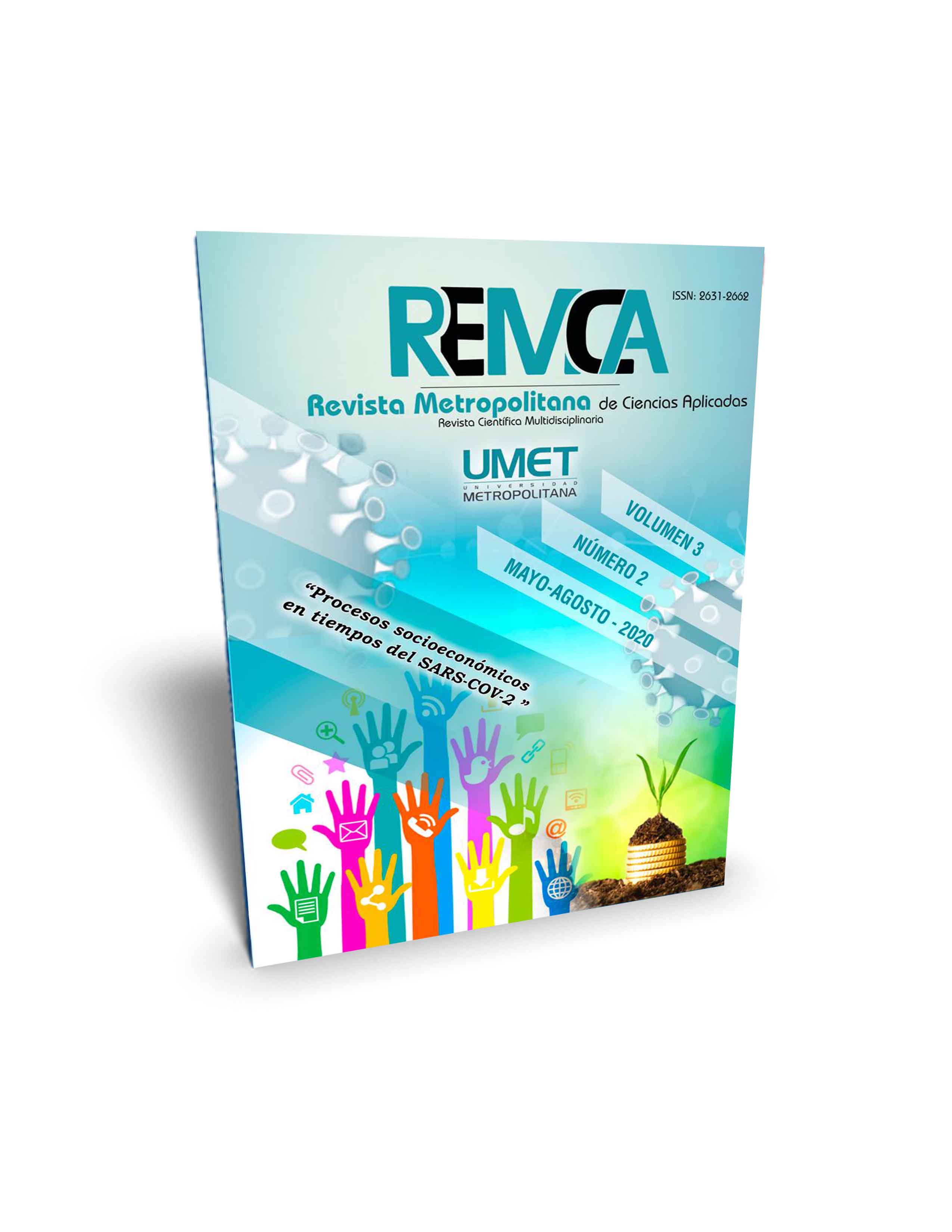El laboratorio computacional matemático, como complemento para promover el aprendizaje del cálculo diferencial
DOI:
https://doi.org/10.62452/rkgq7r77Palabras clave:
Método constructivista, Laboratorio computacional matemático, diseño experimentalResumen
Este trabajo fue desarrollado a través de un diseño experimental de tipo comparativo, utilizando dos grupos uno experimental y otro de control, teniendo como unidades experimentales a los estudiantes del segundo Semestre de la carrera de Ingeniería Acuícola de la Universidad Técnica de Machala, de los periodos académicos D1 y D2 del año lectivo 2017-2018, al grupo experimental se le dicto la asignatura utilizando el método constructivista por considerar los diferentes estilos de aprendizaje de los estudiantes complementándolo con la prácticas de laboratorio computacional matemático, con los resultados fue posible contrastar la hipótesis de que la enseñanza del cálculo diferencial, practicada de forma sistemática y complementada con herramientas de computacionales, es capaz de promover aprendizaje significativo en sus estudiantes.
Descargas
Referencias
Camacho, Y. C., & Aladro, M. (2011). Estilos y tipos de aprendizaje. Un problema contemporáneo de la educación. Cuadernos de Educación y Desarrollo, 3(28).
Castañeda, A., & Álvarez, M. (2004). La reprobación en matemáticas. Dos experiencias. Tiempo de Educar, 5 (9), 141-172.
Castaño, V. (2015). El método del aprendizaje basado en problemas como una herramienta para la enseñanza de las matemáticas. RIDE Revista Iberoamericana para la Investigación y el Desarrollo Educativ, 6(11).
Castro, S., & Guzmán de Castro, B. (2005). Los estilos de aprendizaje en la enseñanza y el aprendizaje: Una propuesta para su implementación. Revista de Investigación, 58, 83-102.
Cheng, H. (2016). Teaching math with computer programming can help narrow achievement gap. https://edsource.org/2016/teaching-math-with-computer-programming-can-help-narrow-achievement-gap/563371
Díaz Barriga Arceo, F. (2001). Estrategias docentes para un aprendizaje significativo: una interpretación constructivista. McGraw - Hill.
Díaz Mosquera, E. (2012). Estilos de Aprendizaje. EIDOS, 5, 5-11.
Hobenshield Tepylo, D., & Floyd, L. (2018). Learning Math Through Coding. Math + Code 'Zine, 3(1).
Iglesias-Domecq, N., Alonso-Berenguer, I., & Gorina-Sánchez, A. (2017). El Cálculo Diferencial e Integral en las carreras de ciencias técnicas. Especificaciones de su enseñanza. Maestro y Sociedad, 14(4), 660-670.
Jarvis, D. H., Lavicza, Z., & Buteau, C. (2012). Computer Algebra System (CAS) usage and sustainability in university mathematics instruction: Findings from an international study. Paper presented as part of Topic Study Group 18: Analysis of Uses of Technology in the Teaching of Mathematics, at the 12th International Congress on Mathematical Education (ICME-12). Seoul, Korea.
Kolb, D. (1984). Experiential Learning: Experience as the Source of Learning and Development. Editorial Prentice- Hall.
Kumar, A., & Kumaresan, S. (2008). Use of Mathematical Software for Teaching and Learning Mathematics. The International Congress on Mathematical Education (ICME) 11, 373–388.
Ortiz, D. (2015). El constructivismo como teoría y método de enseñanza. Sophia, 19.
Reyes Andrade, D., & Pérez Vence, M. (2016). Grupos de estudio para favorecer el aprendizaje del cálculo. Revista Iberoamericana de Producción Académica y Gestión Educativa, 2, 1-18.
Romero, J. E. (2007). Matemática Básica Guía Didáctica del Docente. Ministerio de Educación del Ecuador.
Truong, H. M. (2016). Integrating learning styles and adaptive e-learning. Current developments, problems and opportunities. Computers in Human Behavior, 55, 1185-1193.
Vrancken, S., et al. (2006). Dificultades relacionadas con la enseñanza y el concepto de lìmite. Revista PREMISA, 8(29), 9-19.
Descargas
Publicado
Número
Sección
Licencia
Derechos de autor 2020 Bladimir Homero Serrano Rugel, Víctor Javier Garzón Montealegre, Alexis González Macas, Abrahan Rodolfo Cervantes Alava (Autor/a)

Esta obra está bajo una licencia internacional Creative Commons Atribución-NoComercial-CompartirIgual 4.0.
Los autores que publican en la Revista Metropolitana de Ciencias Aplicadas (REMCA), están de acuerdo con los siguientes términos:
1. Derechos de Autor
Los autores conservan los derechos de autor sobre sus trabajos sin restricciones. Los autores otorgan a la revista el derecho de primera publicación. Para ello, ceden a la revista, de forma no exclusiva, los derechos de explotación (reproducción, distribución, comunicación pública y transformación). Los autores pueden establecer otros acuerdos adicionales para la distribución no exclusiva de la versión de la obra publicada en la revista, siempre que exista un reconocimiento de su publicación inicial en esta revista.
© Los autores.
2. Licencia
Los trabajos se publican en la revista bajo la licencia de Atribución-NoComercial-CompartirIgual 4.0 Internacional de Creative Commons (CC BY-NC-SA 4.0). Los términos se pueden consultar en: https://creativecommons.org/licenses/by-nc-sa/4.0/deed.es
Esta licencia permite:
- Compartir: copiar y redistribuir el material en cualquier medio o formato.
- Adaptar: remezclar, transformar y crear a partir del material.
Bajo los siguientes términos:
- Atribución: ha de reconocer la autoría de manera apropiada, proporcionar un enlace a la licencia e indicar si se ha hecho algún cambio. Puede hacerlo de cualquier manera razonable, pero no de forma tal que sugiera que el licenciador le da soporte o patrocina el uso que se hace.
- NoComercial: no puede utilizar el material para finalidades comerciales.
- CompartirIgual: si remezcla, transforma o crea a partir del material, debe difundir su creación con la misma licencia que la obra original.
No hay restricciones adicionales. No puede aplicar términos legales ni medidas tecnológicas que restrinjan legalmente a otros hacer cualquier cosa que la licencia permita.




